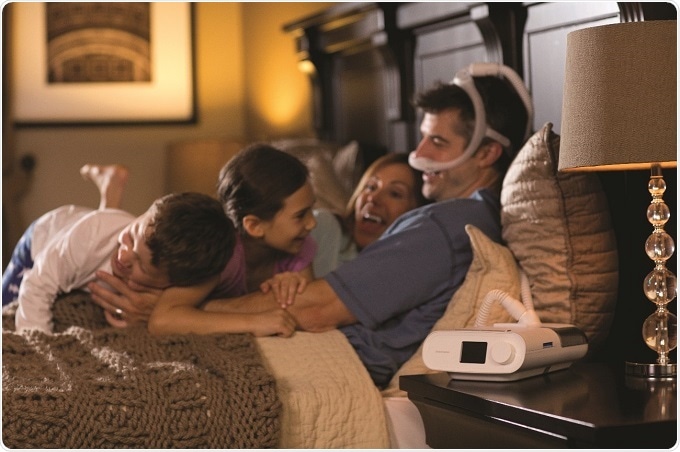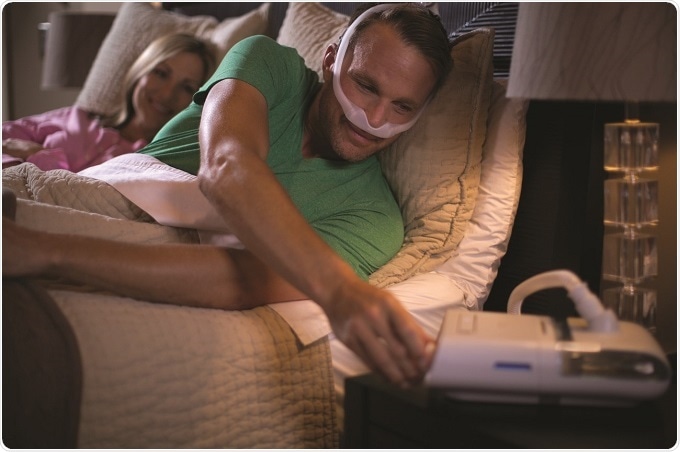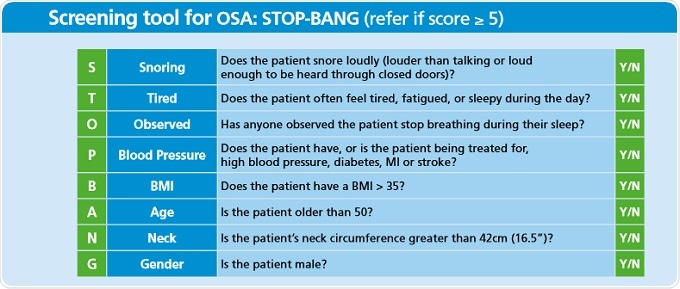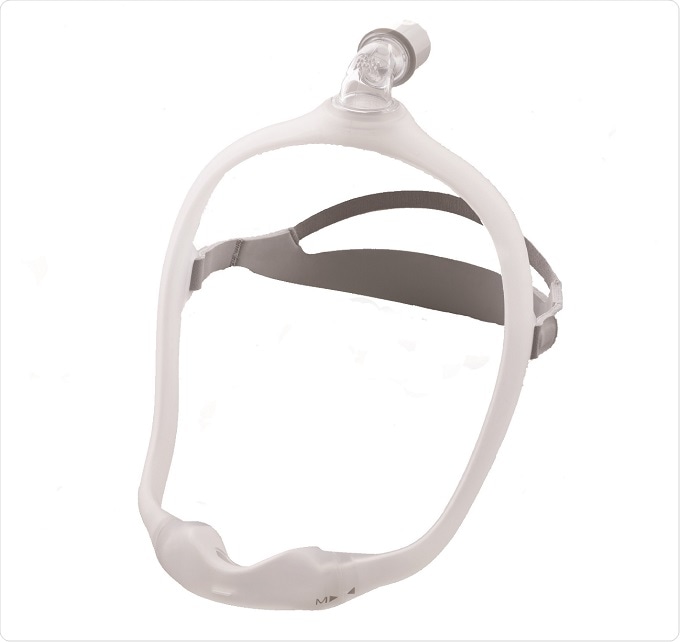An interview with Michael Oko, consultant ENT surgeon, and Tom Kelly, clinical expert in Sleep and Respiratory Care at Philips, conducted by April Cashin-Garbutt, MA (Cantab)
Can you please outline the international survey on sleep that was recently conducted by Harris Poll on behalf of Philips? What was the aim of this survey?
Tom Kelly: This poll was conducted to support World Sleep Day and the activities across the globe carried out on this day were to increase awareness of the importance of sleep health.
Philips wants to raise awareness of good sleep health because its importance and impact on our daily lives is currently overlooked, so this survey is a great way to get people thinking about an area of their health they may not currently give much attention to.
By doing this across five different global markets we are also exploring social and cultural influences on the perception of sleep health, letting us give some fresh new insights and ways of thinking about sleep.

What were the main findings of the report?
Tom Kelly: The main findings that were applicable across the five countries surveyed; the U.S., Holland, Germany, France and Japan, were twofold and intrinsically connected.
Firstly, across the board people understand sleep has a role in our overall health, 90 percent of people surveyed understand the link between good sleep and feeling good.
Secondly, more than 80 percent of participants said time demands they face in their daily lives compete with their ability to facilitate a good night’s sleep.
The data from this survey suggests that embedding good sleep patterns within daily routines is currently a difficult challenge for lots of people.
What types of activity did people prioritize over a good night’s sleep?
Tom Kelly: There were a range of activities that participants cited. A particularly notable one was spending time with family. A considerable number of participants placed family time above a good night’s sleep.
A second common activity was looking at digital screens, be it watching TV or checking emails or browsing social media as a final activity before bed, despite there being medical data available suggesting this activity stimulates the body instead of relaxing it.
Were you surprised by the results?
Tom Kelly: In some instances yes, definitely. To elaborate on the data regarding watching TV before bed, I think this highlights that there is a clear need for more education on good sleep health and specifically preparing for sleep.
We were surprised that people are still looking at screens before bed, whether due to work obligations or because they consider it a relaxation activity. The data suggests there could be a disconnect between perception and reality.
People think they are relaxing when browsing the web or watching TV because they are not working or actively thinking, but the physical process of the activity is physiologically and neurologically stimulating, making it harder to sleep.
That is why Philips carries out activities like this, because there is a clear need for more education to support people to form healthy sleep habits.

In what ways did the results vary by country?
Tom Kelly: The results varied in a number of ways. One striking result was that the U.S. placed more emphasis on the importance of work than the other countries surveyed.
While all of the countries surveyed prioritised sleep over their jobs, 30 percent of U.S. participants surveyed cited that sending emails late at night while others slept was demonstrative of caring more about their jobs. It is an interesting insight that may suggest that daily routines for U.S. participants will have a greater emphasis on work and sleep is an activity people think they can compromise.
Other variations were that Japanese participants placed the greatest emphasis on sleep as a contributing factor to a happy marriage and that French participants said they most keenly felt the negative effects of a bad night’s sleep.
How important is sleep to our health?
Michael Oko: Sleep is a key pillar of good health and it is one that impacts immediately and significantly; most people do not operate optimally without a good night’s sleep.
People need to acknowledge and respect the importance of sleep more, and consider it a fundamental cornerstone of good health and wellbeing.
As the Philips survey data suggests sleep is currently being compromised by too many people. It is also important to be aware that consistent poor sleep can be the result of sleep disorders such as Obstructive Sleep Apnoea (OSA), people should seek medical advice if they experience poor sleep for a prolonged period.
Is regular snoring indicative of a potential sleep disorder?
Michael Oko: Yes, regular snoring is a common symptom of sleep disorders such as OSA. If you or your partner snores loudly, has loud or laboured breathing when sleeping or your breathing is interrupted by gasping or snorting in the night then you should seek medical advice.
What medical conditions are associated with sleep disorders?
Michael Oko: There are a number of serious medical conditions associated with OSA, especially when left undiagnosed and untreated; 33% of patients with untreated severe(AHI>30) OSA over a 12 year period experienced a major cardiovascular event; such as a stroke or heart attack2, in addition to this about 15% will unfortunately die2. It is therefore extremely important that OSA is both diagnosed and treated as quickly as possible, the modified STOPBANG test below is a quick and effective test for OSA. Patients should seek medical advice if their score is over 3.

With 38% of OSA patients more likely to develop heart disease and 77% more likely to have hypertension, while 58% of patients with type 2 diabetes also suffer from OSA2, it stands to reason that patients who are treated effectively save 50% on healthcare costs over two years3.
What advancements in treatment have you seen for the sleep disorder sleep apnea?
Michael Oko: A significant advancement is the new designs of OSA masks that are now designed to suit the needs of the patients to ensure a comfortable and secure fit. An great example of an innovative mask is Philips Dreamwear which allows more freedom of movement and more comfort than previous masks, allowing patients to sleep in any position they desire.
Technology is another key advancement that has been a catalyst to improving adherence to treatment for OSA patients. The technology, in this case, is a combination of remote patient monitoring and self-monitoring to make it easier for patients with OSA to stick with their CPAP (continuous positive airway pressure) therapy.
Devices used by patients at home now have remote patient monitoring technology, so as a consultant I can regularly track my patients’ data remotely, paired with Apps for the patients so they can check their own information on their treatment plan.
This remote monitoring technology has contributed to helping patients stick with the program and in addition reduces the number of appointments a patient may need.

What innovative sleep solutions are in the pipeline from Philips?
Tom Kelly: Philips is working innovatively in two ways. We are developing new pathways that will enable the distribution of established technologies, treatments, and support to the many undiagnosed sufferers of Obstructive Sleep Apnea (OSA).
Right now in the UK, approximately 330,000 people have moderate or severe OSA but remain undiagnosed and untreated1. Apart from minimizing the recognised risks to health that this represents to these individuals, it is estimated that up to 40,000 road traffic accidents could be prevented each year1 by providing them with appropriate therapy. Providing timely, accessible therapy would not only confer these benefits, but could save the NHS £28m per year1.
OSA is just one of many sleep conditions, and at Philips we are working to simplify access to the diagnosis and treatment of a wide range of sleep conditions. Enabling patient self-management is key in improving the health of millions of people currently suffering from poor sleep.
We are looking at advanced devices and pathways that will address snoring, sleep deprivation, insomnia and other conditions, which will improve access to diagnostic services, and provide ongoing monitoring, coaching and support.
Public awareness of the need for good sleep is growing very quickly, and we believe it is vital to provide the solutions and support required to respond effectively to this growing need.
Where can readers find more information?
About Michael Oko and Tom Kelly
Tom Kelly is an RCCP accredited physiologist who has worked in respiratory and sleep services in the U.K., Ireland, and New Zealand. He has held the post of Honorary Chairman of the Irish Association of Respiratory Scientists and has served as Manufacturers Liaison Committee Chairman of the Association of Respiratory Technology and Physiology.
Mr Oko qualified in medicine in 1986 and undertook his specialist training in Ear, Nose and Throat Surgery at St Mary’s and Royal National Throat, Nose and Ear Hospital in London. He worked with Charles Croft at The RNTN&E where he developed an interest in OSA in the early 90’s. Formerly Clinical Lecturer in ENT Surgery at the University of Glasgow, in 2005 he was appointed Consultant ENT Surgeon and Clinical Lead for the Sleep Apnoea Service at the United Lincolnshire Hospitals Trust (ULHT).
Since founding the Sleeping Disorders Centre at the Pilgrim Hospital in Boston, Lincolnshire in 2006, Mr Oko has gone on to open satellite clinics at Johnson Hospital in Spalding and at 150 Harley Street. His pioneering sleep service at ULHT was the recipient of the NHS East Midlands Healthcare Award for service transformation in 2008, and in 2011 the Middle East Hospitals award for respiratory excellence in recognition of his work on raising awareness of sleep apnoea in the region.
As a member of the Department of Health’s Obstructive Sleep Apnoea Working Group, Mr Oko is actively involved in highlighting the risks associated with undiagnosed sleep apnoea, and in campaigning for better research and facilities for the condition.
References
- https://www.blf.org.uk/help/support-network
- Marin Lancet 2005;365:1046-53
- www.blf.org.uk
- Sleep 1999;22:740-7